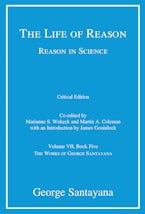These lucid studies of Derrida, Foucault, Habermas, and Rorty analyze major contributions to recent critical theory and forge a distinct position in the current philosophical debate.
These lucid and closely reasoned studies of the thought of Jacques Derrida, Michel Foucault, Jürgen Habermas, and Richard Rorty provide a coherent analysis of major pathways in recent critical theory. They defend a position analogous to Kant's - that ideas of reason are both unavoidable presuppositions of thought that have to be carefully reconstructed and persistent sources of illusions that have to be repeatedly deconstructed.McCarthy examines the critique of impure reason from the complementary viewpoints of the attackers and defenders of Enlightenment rationality. He first analyzes the work of Rorty, Foucault, and Derrida to determine what these radical critics have contributed to our understanding of reason and where they have gone wrong. He explores Habermas's theory of communicative rationality, focusing on the attempt to go beyond hermeneutics, the incorporation of systems theory, the implications of discourse ethics for our understanding of political debate and collective decision making, and the relation of political theology to critical social theory.
The analysis and assessment of Habermas's recent work in Ideals and Illusions serves as a sequel to his earlier study The Critical Theory of Jürgen Habermas.












